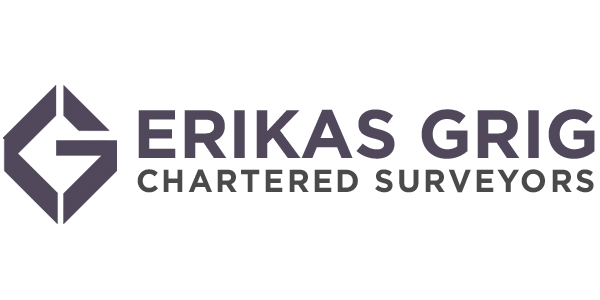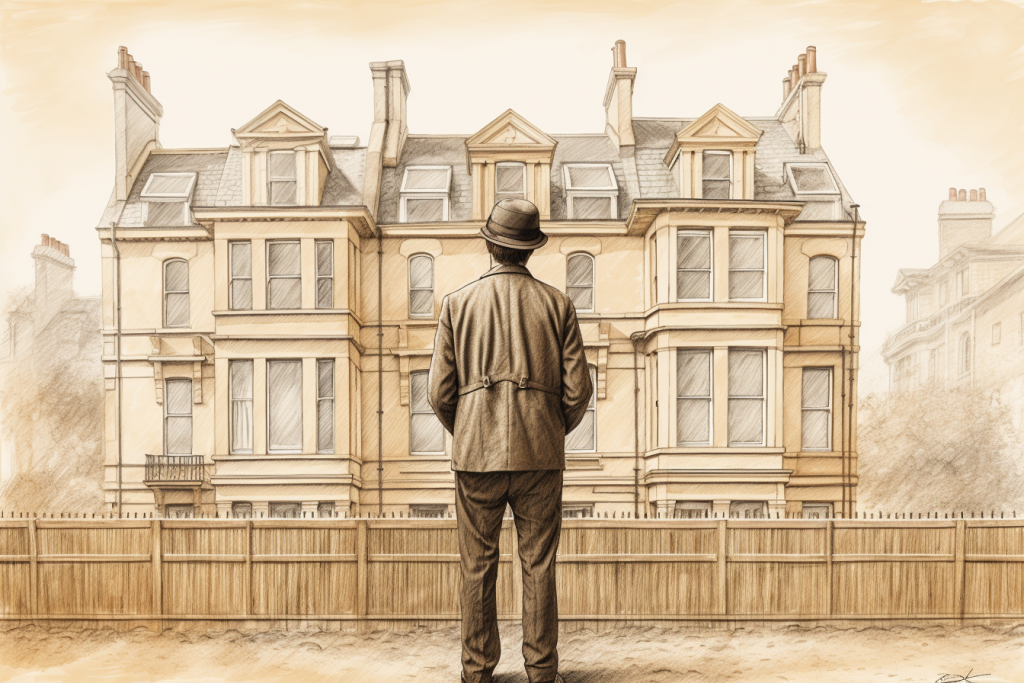A probate valuation encompasses calculating the value of the deceased’s assets, which is critical for determining any inheritance tax liabilities and ensuring equitable asset distribution among beneficiaries. This guide aims to equip you with essential knowledge on conducting a probate valuation accurately, the roles of Personal Representatives, and the potential implications of getting it wrong.
Key Takeaways
- Probate valuation is a critical step in determining the value of a deceased person’s estate for inheritance tax purposes and involves a detailed assessment of all their assets, including property, by Personal Representatives.
- Different methods of property valuation during probate include estate agent valuations and RICS chartered surveyor valuations, the latter usually being most reliable, especially for non-standard properties or those exceeding £325,000 in value.
- Accuracy in probate valuations is essential to avoid the risk of significant penalties from HMRC for underpayment of inheritance tax and to ensure all potential assets and debts are accounted for.
Understanding Probate Valuation
The assets encompassed in the valuation cover everything from savings and investments to mortgages and loans. The accuracy of these valuations is paramount since they directly impact the calculation of inheritance tax. Indeed, the importance of precise property valuation cannot be overstated as the deceased’s property is often the most challenged asset type by HMRC and their appointed district valuers.
Key Terms in Probate Valuation
To fully comprehend probate valuation, it helps to understand a few key terms. The market value, for instance, is the price a property might reasonably be expected to sell for on the open market at the date of death. This forms the basis of the property valuation for probate and is used to calculate inheritance tax.
Finally, inheritance tax is not confined to the value of the probate property alone; it applies to the entire estate of the deceased. Therefore, a precise valuation of the estate’s value is vital to determine the inheritance tax amount payable.
The Role of Executors and Administrators
Executors and administrators bear quite a weight of responsibility. They are charged with:
- Determining the worth of the estate’s assets and debts
- Managing the computation and resolution of any unpaid tax obligations
- Distributing the remaining estate
- Ensuring that they only rely on reputable advice
Considering the complex nature of these tasks, it’s no surprise that executors or administrators often turn to professionals such as chartered surveyors for a professional probate valuation of property and contents.
Probate Valuation Methods
Deceased’s estate representatives for probate property valuations often resort to using valuation estimates provided by estate agents or obtaining a professional valuation report prepared by a chartered surveyor.
When selecting a professional, Personal Representatives should keep in mind the unique requirements of the estate’s valuation.
Estate agent valuations
Estate agent valuations may seem like a convenient option. After all, local estate agents are often knowledgeable about the local property market and offer their services free of charge. However, it’s worth noting that these valuations can vary greatly, and they are not as accurate or reliable as those provided by RICS surveyors, especially for properties that are not straightforward or exceed £325,000 in value.
RICS chartered surveyor valuations
RICS chartered surveyor valuations, on the other hand, offer a more rigorous and reliable approach to probate valuation. These valuations are conducted by registered valuers, ensuring a high level of accuracy and reliability. The chartered surveyors will take into account a number of attributes of the property they are valuing such as:
- condition
- dimensions
- location
- development value
- other pertinent factors
They also analyze recent sales of comparable properties in the vicinity to ascertain the property’s market value. While valuation by chartered surveyors comes at a cost, it holds more weight with HMRC and is deemed more dependable as it follows set standards.
One downside to consider is the initial cost associated with engaging a RICS chartered surveyor. However, taking into account the potential penalties for incorrect estate valuations and the additional tax implications, the cost of a professional valuation often pays itself many times over and provides peace of mind.
Timeline for Submission
In the matter of probate valuations, punctuality is paramount. Inheritance tax forms must be submitted to HMRC within a year following the individual’s death. This might seem like a generous timeline, but given the complexities of the probate process and the amount of paperwork required, it can quickly become a race against the clock.
In order to submit a probate valuation to HMRC, it’s necessary to complete the PA1P (if will is present) – Probate Application and IHT405 – Estate information forms. The initial payment for Inheritance Tax should be made within six months of the end of the month in which the deceased died. Missed deadlines can result in penalties, with fines potentially reaching up to £3,000 if the submission is after 12 months deadline and if the non-compliance persists beyond that timeframe.
Factors Affecting Formal Valuation Necessity
- are non-standard due to their construction materials or features
- have the potential for development
- are rundown and in need of renovations
- exceed the value of £325,000
In these cases, formal property valuations may be required.
Non-standard properties can include those with non-traditional roofs and walls, while properties with development potential might have ‘hope value’ or other elements that impact their valuation. In contrast, a straightforward residential property typically doesn’t have these complexities. Rundown properties also require a formal valuation to accurately assess their true value and potential refurbishment costs.
Potential Penalties for Incorrect Estate Valuations
Imprecise estate valuations can attract substantial penalties. The HMRC reserves the right to levy penalties anywhere from 30% to 100% of the additional tax liability for estates undervalued in probate. Given that underestimated valuations directly impact the computation of inheritance tax, the financial implications can be significant.
Moreover, the HMRC frequently challenges probate valuations as part of their efforts to increase Inheritance Tax revenue. In the event of a contested valuation, Personal Representatives have the opportunity to provide evidence and collaborate with the Valuation Office Agency to substantiate their submission. In order to reduce or eliminate penalties, it’s essential to accurately report values, demonstrate cooperation with HMRC, and seek expert guidance during the administration process. If Executors or Administrators relied on informal valuations produced by estate agents and unqualified contents valuers it is highly likely that HMRC will impose penalties if proven that values reported are incorrect.
Assets to Include in Estate Valuations
Valuation for probate goes beyond merely appraising property. It entails a thorough assessment of all assets owned by the deceased at the time of their death. This includes:
- Bank accounts
- Savings accounts
- Pensions
- Investments
- Stocks and shares
- ISAs
- Insurance cover/documents
- Valuable household contents
- Businesses owned
- Foreign assets
- Trust assets
- Debts
- Valuable gifts received in the last seven years.
The valuation of these assets varies. For instance:
- Bank and savings accounts are valued by summing up the total balance of the deceased’s accounts, along with any interest accumulated up to the date of death.
- Pensions should be appraised for probate if they are designated to the estate.
- Investments, stocks, and shares are valued based on their market value on the date of the deceased’s death.
It’s essential to take a meticulous approach to ensure that all assets are included and accurately valued.
Selling Price vs. Probate Value: Implications
The difference between the selling price and declared probate value can have significant tax implications. Here’s what you need to know:
- The probate value represents the asset’s value determined at the time of the deceased’s death.
- The selling price is generally the market value of the property because it happens in an arm’s length transaction between a willing seller and a willing buyer.
In cases where the selling price surpasses the probate value, the HMRC may re-evaluate the initial valuation but typically utilizes the original assessment for tax calculation purposes. This can be rectified by submitting a Corrective Account, to recalculate the IHT liability.
If the selling price is materially different from the declared probate value, this can lead to HMRC opening an investigation possibly leading to penalties if proven that the declared value was negligent or dishonest.
Additionally, it’s important to be aware of potential Capital Gains Tax implications if the property is sold for more than its declared probate value.
Tips for Accurate Valuations
While it may seem challenging to ensure an accurate probate valuation, with the right advice and guidance, it becomes a manageable task. Engaging a RICS chartered surveyor provides you with a regulated valuation report that adheres to the IHT manual and is prepared in accordance with the standards outlined in the RICS Red Book.
It’s also a good idea to investigate the reputation of valuation firms before selecting one to work with, ensuring you receive valuation advice from chartered surveyors specialising in probate matters.
Conclusion
Ultimately, the key to a smooth probate valuation process lies in meticulous planning, professional guidance, and careful consideration of all relevant assets and factors. Remember, it’s not just about putting a price tag on assets, but ensuring a fair and equitable distribution of the deceased’s estate. So, be diligent, seek expert advice, and above all, approach the task with patience and understanding.
Frequently Asked Questions
What is included in a probate valuation?
A probate valuation includes everything owned by the deceased at the time of their death, minus any debts. This provides a comprehensive view of the estate’s value.
What is the difference between insurance valuation and probate valuation?
The main difference between insurance valuation and probate valuation is that insurance valuation is based on the replacement cost, while probate valuation is based on the market value.
What happens if you undervalue a house for probate?
Undervaluing a house for probate can lead to penalties and additional tax liabilities imposed by HMRC. It is crucial to report probate valuations accurately to avoid any potential investigations or repercussions.
What is a RICS probate valuation?
When applying for probate, it’s important to obtain an RICS Red Book valuation to accurately assess the value of any property in the estate, reflecting its market value on the date of the owner’s death. The valuation is conducted by an RICS chartered surveyor who will adhere to the IHT manual and RICS Red Book when conducting a valuation for probate.
How do you value house contents?
To value the contents of your house, start by creating a list of all the rooms and item categories. Then, research the value of similar items online and consider the age and condition of your possessions. Lastly, calculate the total value for each room and any valuable items to estimate the value of your home contents.






